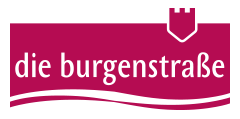Heidelberg
.Goethe, somewhat reserved in his praise, called the town 'a little bit of perfection', Mark Twain, the pragmatic Mississippi pilot, wrote of 'extreme possibilities of beauty'. Heidelberg, which today has around 160,000 inhabitants, was a residence of German Electors and for centuries a focal point of German history. Bound up with it are names of royal dynasties such as Wittelsbach, Stuart or Medici, theologians like Martin Luther or politicians such as Friedrich Ebert (1871-1925), first president of Weimar Germany. The beauty of the location and the architecture of the town are striking, encompassed by the wooded Heiligenberg and the “King’s seat” (Königstuhl) hill, at the point where the Neckar emerges from the Odenwald forest on to the Rhine plain, the Baroque outline of the houses and of course the ruins of the Elector's castle. Modern life still pulsates underneath, in the winding lanes of the old town, students, tourists and locals all come together. The annual festivals of classical music, jazz, film, theatre and literature are all visitor magnets. Germany's oldest university, founded in 1386, conducts research of the highest order. Great names have determined its history, the ninth Nobel Prize winner from Heidelberg, Professor Harald, was chosen to join their ranks in 2008. Heidelberg has many advantages, the scientific and economic location of Heidelberg with its core competencies in life sciences, environmental management and information technology is a 'Mecca of the Life Sciences', its location in one the most dynamic economic regions of Germany makes the town an attractive conference and convention centre, it is a world-famous tourist flagship and also offers a unique quality of life.












